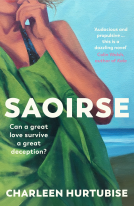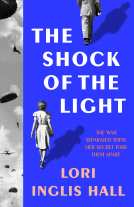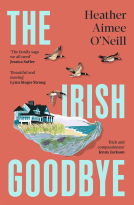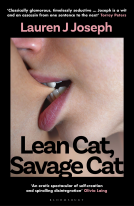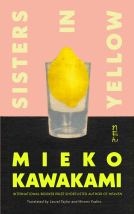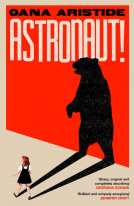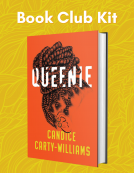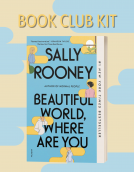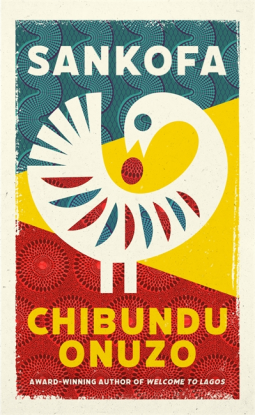
Sankofa
'I LOVED Sankofa' Marian Keyes
by Chibundu Onuzo
This title was previously available on NetGalley and is now archived.
Send NetGalley books directly to your Kindle or Kindle app
1
To read on a Kindle or Kindle app, please add kindle@netgalley.com as an approved email address to receive files in your Amazon account. Click here for step-by-step instructions.
2
Also find your Kindle email address within your Amazon account, and enter it here.
Pub Date 3 Jun 2021 | Archive Date 3 Jun 2021
Little, Brown Book Group UK | Virago
Talking about this book? Use #Sankofa #NetGalley. More hashtag tips!
Description
A REESE WITHERSPOON BOOK CLUB PICK
A BBC 2 BETWEEN THE COVERS BOOK CLUB PICK
SHORTLISTED FOR THE WOMEN'S PRIZE FOR FICTION FUTURES PRIZE
AN AMAZON BEST BOOK OF THE YEAR
'A captivating story about a mixed-race British woman who goes in search of the West African father she never knew' REESE WITHERSPOON
Anna is at a stage of her life when she's beginning to wonder who she really is. She has separated from her husband, her daughter is all grown up, and her mother - the only parent who raised her - is dead.
Searching through her mother's belongings, she finds clues about the West African father she never knew. Through reading his student diary, chronicling his involvement in radical politics in 1970s London, she discovers that he eventually became the president (some would say the dictator) of a small nation in West Africa - and he is still alive. She decides to track him down and so begins a funny, painful, fascinating journey, and an exploration of race, identity and what we pass on to our children.
'A real pleasure, it's funny, thought-provoking and holds a light up to everything from cultural differences to colonialism' STYLIST
'I LOVED Sankofa SO MUCH' MARIAN KEYES
'Slick pacing and unpredictable developments keep the reader alert right up to the novel's exhilarating ending' GUARDIAN BOOK OF THE DAY
'Onuzo's sneakily breezy, highly entertaining novel leaves the reader rethinking familiar narratives of colonisation, inheritance and liberation' NEW YORK TIMES BOOK REVIEW
'A really great book, very poignant' SARA COX
Available Editions
| EDITION | Other Format |
| ISBN | 9780349013152 |
| PRICE | £16.99 (GBP) |
| PAGES | 304 |
Average rating from 16 members
Featured Reviews
Sankofa is centred around Anna Bain, born of an 1960s affair between a young Welsh woman in London and Francis Aggrey a student from the (semi-fictional - see below) West African country of Bamana. Growing up, she never knew her father, and he knew nothing of her existence.
We follow Anna in her 50s, where the death of her mother and separation from her husband leave Anna facing something of a mid-life crisis. The discovery of a long-lost diary kindles her interest in her father, and Anna decides to seek him out. She quickly finds out that Francis had gone on to become a independence fighter, prisoner and then President of Bamana. Along the way he dropped his Anglicised name and became Kofi Adjei. And according to many, became a brutal dictator, though the reality may be more complicated.
The story gives the author, Chibundu Onuzo, space to raise a lot of issues - race and racism in 1960s' London and more recently, personal change, white saviourism, colonial violence, governance and politics in post-colonial Africa. These are all explored with admirable subtlety and insight, with no glib conclusions offered, and without weighing down the story in dense philosophical debates. We're _shown_ the issues, not preached to, either by the author or any of the protagonists.
The prose is clear and engaging, the characters well-rounded and real, the plot believable and interesting. The result is a fascinating tale, and wonderful book.
One final point worth mentioning is the intriguing decisions Onuzo makes when it comes to fictionalising the locations. Bamana is not a real country, but it was an empire in past centuries, in part of what is now Mali. The real Empire's capital was the city of Segou, the fictional country's is Segu. Other details are changed, however: in the book, Bamana is a coastal nation, and a former British colony, neither or which applies to 18th-19th century Bamana. The names are drawn from a wide African pool, though with a particular Ghanaian flavour. The real-world city of Gbadolite, in the Democratic Republic of the Congo, appears in the novel within Bamana, as Adjei's playground rather than Mobuto's. There are also similarly intriguing nods to classics of African literature - Things Fall Apart and No Longer at Ease. I did not manage to unpick any alternative meanings in this, though there may well be symbolism and allusions that eluded me. If nothing else, however, it helped create a plausibility and reality in the fiction that worked very well.
Sankofa is a novel about finding who you are and parent-child relationships, as a mixed-race British woman tracks down the African father she never knew. Anna grew up knowing very little about her black father, but her white mother never quite knowing what to do with her mixed-race daughter. Separated from her husband and with her mother recently passed away, Anna finds a diary written by her father when he was in London, detailing his involvement in radical politics, and then discovers that subsequently he became the president of a country in West Africa. She's inspired to track him down and trace the side of her family she never knew, but she discovers a life very different to her own.
This is an easy to read and gripping novel about a middle-aged woman looking for her father and also searching for purpose now her own daughter is grown up and she is separated from her husband. The narrative weaves together various elements of Anna's life and she's a fascinating character, someone dwelling on the past but also looking for new connections. There are a few threads or characters that seemed like they were going to go somewhere but don't, though some of these are because Anna as a character is avoiding things in her life. Underlying themes like how Anna is treated as a mixed-race person both in England and Bamana and how her mother treated her race provide interesting looks at cultural expectations and identity, combining well with the generally light story of her expected discoveries about her father.
A refreshing chance to see a middle-aged character searching for their family and heritage, Sankofa is a readable book that combines humour with a look at what it's like to be mixed-race and to have only grown up knowing one half of your family and identity.
 Reviewer 482163
Reviewer 482163
I adored this book. The style of writing is so feeling and also detached at times in its own way too. It fits perfectly with the journey Anna goes on. I love that the characters are complex and imperfect and the contrast of her life and experiences in both England and Bamana. I could have read another 200 pages quite happily and I’ll be thinking about this book for a while.
Sankofa is a simple, beautifully written book so compelling that I read it all in one day. It's the story of Anna Bain a mixed-race British woman who at 48 years old, following her mothers' death, discovers that her father, Francis Aggrey, a man she never knew is alive and living in Bamana in West Africa.
She gets a glimpse of who Francis was by reading the diaries he left with her mother before he left England for Africa and feels an affinity with him through the pages of his decades-old journals. With her marriage on the rocks and her daughter old enough to live her own life, Anna decides to travel to Bamana on her own and meet the father she never got the chance to know. The man she finds when she arrives seems very different to the somewhat naive Francis of his diaries but the more she gets to know him, the more Anna understands that identity can be complex and multi-faceted.
Although Bamana and its capital Segu are fictional places in the context of the novel, their names have links to real cities or past empires in Africa. I thought this choice was really clever as it allows Onuzo to maintain a level of authenticity without being bound by the need to stick to historical facts. References to traditions, foods and local dialect all have roots in West African culture which roots the story in reality in a way that may not have happened had Onuzo chosen to create a completely new, fictional language or set of traditions.
Anna who was always aware of her blackness in Britain is surprised to find herself categorised as white when she lands in Bamana, her pale skin standing out as foreign in a land where the majority of people are dark skinned. It's not just her skin colour or hair texture that makes her stand out, it's the assumptions and presumptions she unconsciously holds about Africa from living in the West and consuming its version of history.
I thought Onuzo deftly used Anna's mixed-race identity to explore issues around race and the legacy of colonialism in a way that didn't feel preachy or shoe-horned in to make a point. While, it's perfectly possible to read Sankofa as a straightforward story of a woman looking to connect with a father she never knew, for those willing to dig a little deeper there is a lot more to this tale. Onuzo addresses issues of power, corruption, racism, colourism, father-daughter relationships, sibling relationships, tradition, eating disorders and infidelity in a nuanced way that will encourage you to go away and do your own research or simply assess your own biases.
Prior to reading Sankofa, I had read The Spider King's Daughter by the same author and can see in this, Onuzo's third book, just how much skill she has already gained as a writer. Her writing style in Sankofa is more assured and impactful as much for what she does say as what she leaves unsaid. I would highly recommend this book to anyone with an interest in stories about family and/or race. I look forward to seeing what Onuzo will go on to write as she goes from strength to strength as an author.
Readers who liked this book also liked:
We Are Bookish
Literary Fiction, Multicultural Interest, Women's Fiction
We Are Bookish
Biographies & Memoirs, Nonfiction (Adult), Parenting, Families, Relationships
We Are Bookish
General Fiction (Adult), Literary Fiction, Women's Fiction
